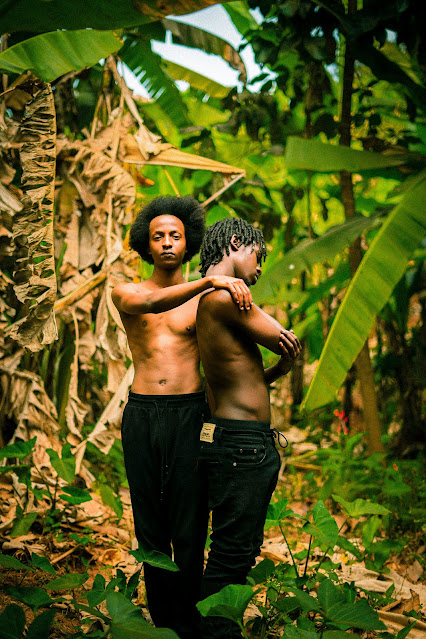Nestled in the heart of East Africa, Rwanda, often referred
to as the "Land of a Thousand Hills," is a country that has risen
from the ashes of a troubled past to become a beacon of hope, resilience, and
sustainable development. With its breathtaking landscapes, rich culture, and
incredible wildlife, Rwanda offers a unique travel experience that captivates
the hearts of all who visit.
A Remarkable Journey of Rebirth
Rwanda's modern history is indelibly marked by the tragic
genocide of 1994, a dark chapter that saw the loss of nearly a million lives in
a span of just 100 days. The country was left in ruins, grappling with the
aftermath of unimaginable human suffering. However, Rwanda's journey since then
is a testament to the power of reconciliation, unity, and visionary leadership.
Under the guidance of President Paul Kagame, Rwanda has
undergone a remarkable transformation. The government has prioritized national
unity and economic development, implementing policies that have propelled the
country towards a promising future. Today, Rwanda is known for its clean
cities, efficient governance, and progressive social policies.
The Beauty of Rwanda's Landscapes
Rwanda's moniker, "The Land of a Thousand Hills,"
is no exaggeration. The country's landscape is a mesmerizing tapestry of
rolling hills, lush valleys, and terraced farms. The Virunga Mountains in the
north are home to the famed mountain gorillas, an endangered species that
attracts wildlife enthusiasts from around the globe. Volcanoes National Park,
located in this region, offers visitors the unforgettable experience of
trekking through dense forests to encounter these gentle giants in their
natural habitat.
In the western part of the country lies Lake Kivu, one of
Africa's Great Lakes. The lake's serene waters, surrounded by dramatic hills,
provide the perfect setting for relaxation and adventure. Visitors can indulge
in activities such as kayaking, swimming, and boat trips to explore the
numerous islands scattered across the lake.
A Haven for Wildlife Enthusiasts
Rwanda is a treasure trove for wildlife enthusiasts. In
addition to the mountain gorillas, the country boasts a rich diversity of flora
and fauna. Akagera National Park, located in the eastern part of Rwanda, is a
stunning savannah reserve that hosts the Big Five – lions, leopards,
rhinoceroses, elephants, and buffalos. The park's varied landscapes, from open
plains to swamps and lakes, offer a unique safari experience.
Nyungwe Forest National Park in the southwest is another
gem. This ancient rainforest is home to a remarkable array of primates,
including chimpanzees and colobus monkeys. The park's canopy walkway, suspended
high above the forest floor, provides a thrilling vantage point to observe the
vibrant ecosystem below.
Embracing Culture and Heritage
Rwanda's rich cultural heritage is deeply rooted in its
traditions, music, dance, and art. The country takes great pride in preserving
and promoting its cultural identity. The National Museum of Rwanda in Huye
offers a comprehensive insight into the nation's history, culture, and art.
Visitors can explore exhibits that showcase traditional artifacts, tools, and
artwork that narrate Rwanda's journey through the ages.
The annual Kwita Izina ceremony, where baby gorillas are
named, is a significant cultural event that highlights Rwanda's commitment to
conservation and community involvement. This event brings together local
communities, conservationists, and international guests to celebrate the
efforts in protecting the endangered mountain gorillas.
Sustainable Tourism and Eco-Friendly Initiatives
Rwanda's approach to tourism is firmly rooted in
sustainability and conservation. The government has implemented stringent
measures to ensure that tourism activities do not harm the environment or wildlife.
Community-based tourism initiatives are encouraged, allowing visitors to engage
with local communities and contribute directly to their livelihoods.
One notable example is the partnership between conservation
organizations and local communities in the Volcanoes National Park area.
Revenue from gorilla trekking permits is reinvested into community projects,
such as schools and healthcare facilities, fostering a sense of ownership and
responsibility among the local population.
Culinary Delights and Hospitality
Rwandan cuisine is a delightful blend of flavors and
influences. Traditional dishes such as "ugali" (a maize-based dish),
"ibihaza" (pumpkin stew), and "isombe" (cassava leaves)
reflect the country's agricultural heritage. Kigali, the capital city, is home
to a burgeoning culinary scene, with restaurants offering both traditional and
contemporary dishes.
Rwanda's hospitality is renowned. The warmth and
friendliness of the Rwandan people make visitors feel truly welcome. Whether
staying in luxury lodges, boutique hotels, or community-run guesthouses,
travelers are treated to exceptional service and genuine hospitality.
Conclusion
Rwanda's story is one of resilience, rebirth, and hope. From
its tragic past, the country has emerged as a shining example of what can be
achieved through unity, visionary leadership, and sustainable development. The
Land of a Thousand Hills beckons travelers with its stunning landscapes, rich
culture, and incredible wildlife. As Rwanda continues to stride towards a
brighter future, it invites the world to witness and be part of its
extraordinary journey.


